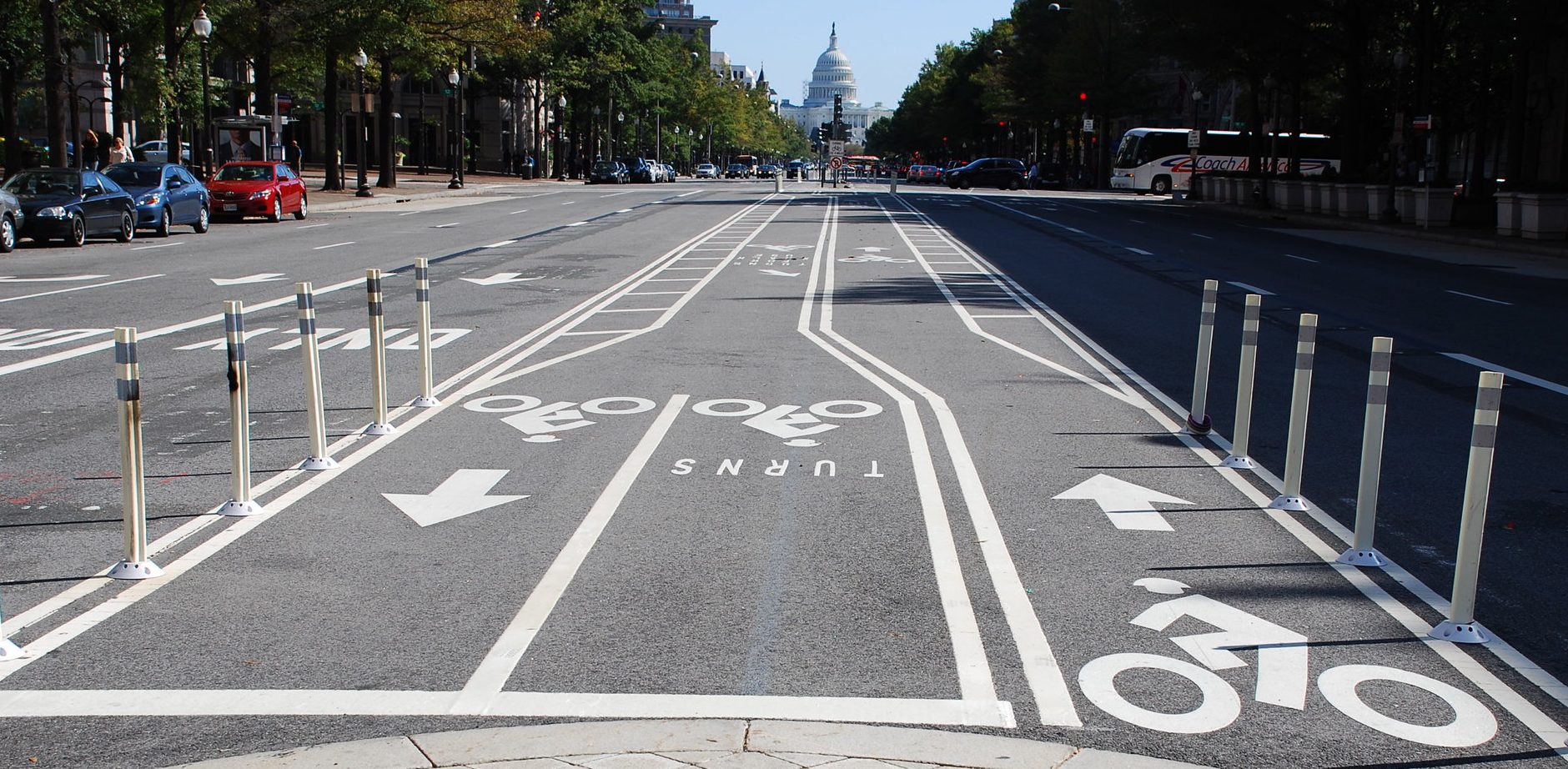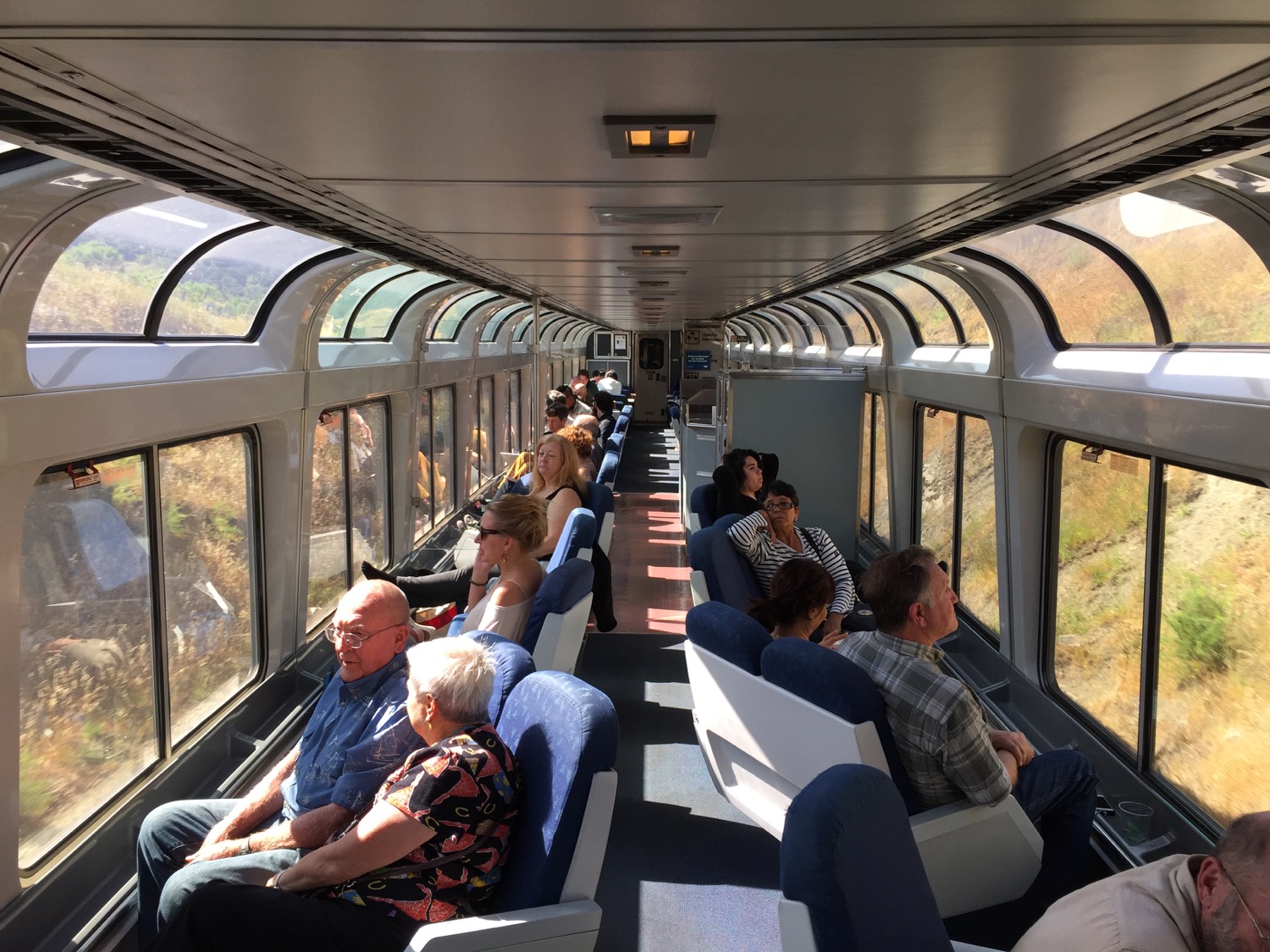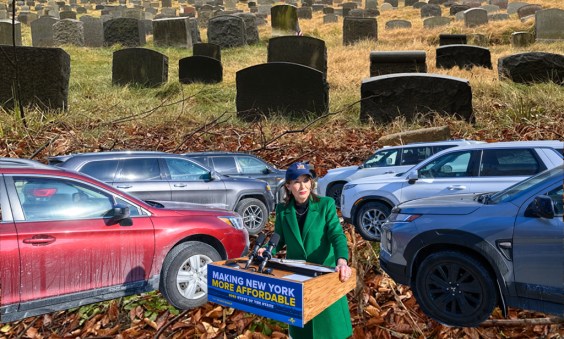Should private transit companies enjoy the same federal gas tax exemption that many public operators receive? How does the existence of private inter-city bus service affect the government's development of new high-speed rail lines? And does it matter that private transit firms are eligible for public subsidies, even if at a much smaller rate than public rail and bus agencies?
 A private firm recently signed a deal with New Orleans officials to help run the city's streetcars, seen above. (Photo: NYT)
A private firm recently signed a deal with New Orleans officials to help run the city's streetcars, seen above. (Photo: NYT)Few definitive answers to those questions were on offer today at a transit panel sponsored by the Mobility Choice coalition, which allies members of conservative-leaning think tanks with a handful of environmental advocates and urbanists -- but the discussion yielded some provocative evidence of the fault lines between public and private operators.
Principally sponsored by the Institute for the Analysis of Global Security (IAGS), the group describes itself as adopting "a fiscally responsible, free market oriented approach to expanding
competition among transportation modes for the purpose of reducing
oil's strategic value."
American Bus Association (ABA) Chairman James Jalbert, whose group represents private bus and motorcoach companies, lamented that the U.S. DOT's implementation of its $10.5 billion high-speed rail program -- which is expected to receive billions more in federal funding in the coming years -- did not envision a role for private-sector firms that already provide inter-city service.
"A good-quality system that could be included in a rail project is now going to be run over by that rail project," said Jalbert, also the president New Hampshire-based bus company C&J. "We want to be part of the solution, but we need to be invited to the party."
Integrating private bus operators into proposed passenger rail projects has to start at the state level, where officials make the call on whether and how to pursue federal bullet-train money, Jalbert added. He described a potentially successful partnership between public inter-city rail and private bus companies as a shared scheduling system, where passengers could purchase tickets for rail during peak hours but an equivalent bus journey during off-peak times, when operating a motorcoach could be more efficient.
Tom JeBran, ABA vice chairman and president of Trans-Bridge Lines in Bethlehem, Pennsylvania, went further than his private-sector cohort in suggesting that public transit agencies receive an unfair advantage, thanks to their operating subsidies and exemption from the federal gas tax.
"The only way I'd support" raising fuel taxes and adding new interstate tolls to pay for nationwide transport improvements, JeBran said, would be if both private and public transit operators got an exemption from those new charges.
Robert Padgette of the American Public Transportation Association (APTA), the transit industry's leading D.C. trade group, fired back at JeBran's depiction of government subsidies that go only to public operators. The U.S. DOT's Section 5311 grants, Padgette noted, do make taxpayer funds available to smaller, private inter-city bus companies.
While Jalbert distanced himself from JeBran's push for a tax and toll exemption for private operators, he could not help but answer Padgette. The public subsidies for private inter-city bus companies average about 8 cents per passenger, Jalbert told the panel attendees. "With all due respect," he quipped, "it's bug dust."
(ed. note. This post was edited from an earlier version.)





